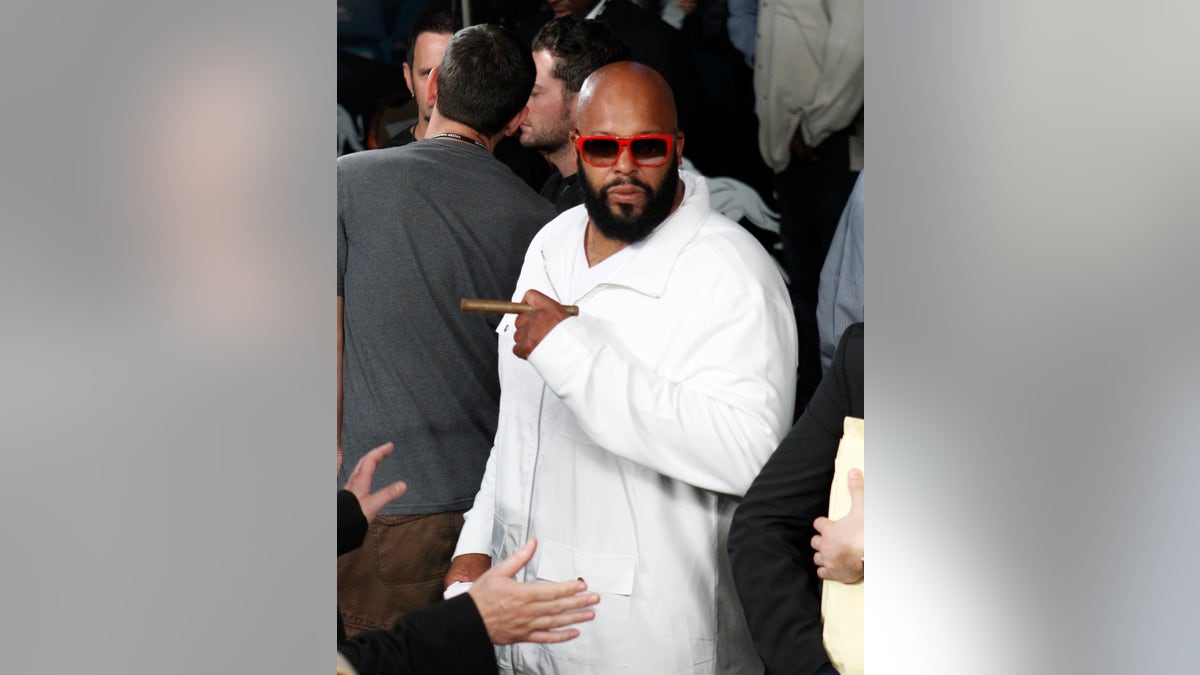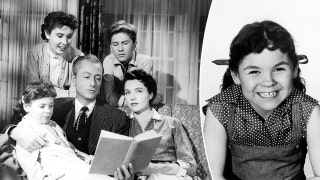
May 5, 2012: CEO of Black Kapital Records Suge Knight is seen following the Miguel Cotto and Floyd Mayweather Jr. title fight at the MGM Grand Garden Arena in Las Vegas, Nevada. (Reuters)
LOS ANGELES – Death Row Records founder and rap mogul Marion "Suge" Knight was injured in an early morning shooting Sunday in a packed nightclub but was expected to survive, a Los Angeles County sheriff's sergeant said.
Knight was one of three club patrons struck by gunfire around 1:30 a.m. at 1OAK on West Hollywood's Sunset Boulevard, said Sgt. C. Tatar, watch commander at the Los Angeles County sheriff's West Hollywood station.
Two other victims, a man and a woman, were also being treated at local hospitals and were expected to survive.
Authorities are still seeking a suspect and declined to release additional information, citing the ongoing investigation.
The shooting came just hours before MTV's Video Music Awards, which are slated for Sunday evening in Inglewood. R&B singer Chris Brown, who was co-hosting a party at the nightclub with Pia Mia, was also inside the club but not hit by the gunfire, Tatar said.
MTV said it had no affiliation or connection to the event.
Representatives for Brown and the party did not return a call for comment. Calls to the club rang unanswered.
Laura Coverson, a spokeswoman for Cedars-Sinai Medical Center, said she could not confirm reports that Knight was being treated there due to strict medical privacy laws.
Knight has been shot before. In 2005, he was struck in the leg during an MTV awards pre-party in Miami Beach.
Knight's genius for poaching up-and-coming talent helped him land and make megastars out of Tupac Shakur, Snoop Dogg and Dr. Dre and shifted the center of the rap universe to the West Coast the 1990s.
Knight formed a separate artist management company before co-founding Death Row Records in 1991 with Dr. Dre, who had broken with popular Compton rap group N.W.A.
Dr. Dre's solo debut album, "The Chronic," became one of the most profitable and influential rap albums of the 1990s. It also made a star of Dr. Dre's underling, Snoop Dogg, whose debut album "Doggystyle" was also widely popular.
Knight, however, has been in and out of jail over the past two decades due to parole violations and physical attacks relating to a "rap war" he fueled with East Coast artists.
Financial troubles also eventually lead to Death Row Records filing for bankruptcy.














































